How Much Does It Cost to Build a Garden Suite in Toronto?
In Toronto, the average cost to build a garden suite ranges from $250,000 to $350,000 or more. These self-contained backyard homes offer flexibility for homeowners who want to house family members, create rental income, or add value to their property. While they are similar in size and style to tiny homes, garden suites come with their own zoning requirements, site-specific challenges, and budget considerations that set them apart.
This guide covers the full cost breakdown of building a garden suite in Toronto, what influences those costs, and how to make the best financial decisions for your project.
For an accurate instant quote on what your garden suite might cost, use our garden suite instant estimator tool.
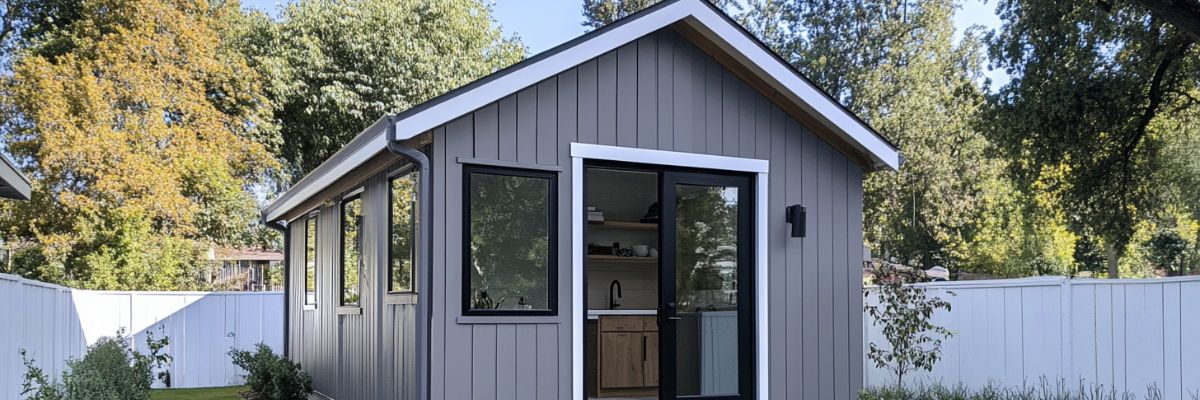
Factors That Affect Garden Suite Costs in Toronto
Several variables can drive your costs up or down. Knowing what to expect can help you make smarter budgeting decisions.
How does the size of your garden suite impact cost?
Size is the single most important cost factor. The larger the structure, the more you’ll spend on materials, labor, and mechanical systems. Toronto’s zoning rules cap garden suites at 60 square meters, however, your garden suite may be two storeys, allowing for more square footage inside the suite.
- Small garden suite (400–500 sq ft): $225,000–$275,000
- Mid-size garden suite (500–645 sq ft): $275,000–$350,000
- Large garden suite (700–1,000+ sq ft): $350,000–$450,000+
How do site conditions influence cost?
Every property is different, and site prep costs can vary widely. Key issues include:
- Sloped or uneven terrain requiring grading
- Soil conditions requiring deep foundations or helical piles
- Tree protection zones or root systems
- Access limitations for machinery or material delivery
These factors can add $20,000 to $60,000 or more to your build.
Do permits and fees add significantly to the budget?
Yes. In Toronto, permit-related fees and development charges typically range from $1,500 to $2,000. This includes:
Toronto Green Standard compliance
Working with a contractor who’s familiar with the process can help reduce delays and surprise costs.
What about design complexity?
Simple, boxy layouts cost less to build than multi-level or custom-shaped designs. High ceilings, unique rooflines, or intricate cladding details require more labor and materials.
Choosing a pre-designed floor plan can lower architectural fees and streamline approval. On the other hand, a custom layout may better suit your family’s needs or future rental goals.

Material and Finish Choices
Material quality and interior finishes can swing your budget by tens of thousands of dollars.
What are budget-friendly material options?
If keeping costs low is a priority, consider:
- Laminate or vinyl plank flooring
- Melamine or thermofoil cabinetry
- Fiberglass shower inserts
- Basic LED lighting and builder-grade fixtures
- Prefabricated kitchens and closets
With smart design, these materials can still create a clean, modern look while staying within budget.
What are the effects of choosing premium finishes?
Upgrades like hardwood floors, quartz counters, in-floor radiant heating, custom tilework, or triple-pane windows can add $25,000 to $75,000 or more.
High-end finishes may boost long-term rental income and durability, but they should be weighed against your budget and investment goals.
Utilities and Infrastructure
Connecting the garden suite to services is a major cost line item.
How much does utility hookup cost?
Water, sewer, and electrical connections to the main house can range from $15,000 to $50,000 or more. Factors include:
- Distance between main house and suite
- Complexity of trenching and routing lines
- Capacity upgrades (e.g., electrical panel expansion)
- Use of heat pumps or electric baseboard systems
It’s essential to account for these costs early in the planning stage to avoid sticker shock later.
Can solar power or off-grid systems save money?
While some homeowners explore solar panels or greywater systems to reduce operating costs, these systems require a higher upfront investment. Solar panel setups can add $15,000 to $30,000 but may pay off over time if electricity use is high. Additionally, Canada offers a refundable 30% tax credit on equipment cost for clean energy systems like solar panels, making the cost more palatable.
Is It Better to Build or Buy a Garden Suite?
What are the pros and cons of prefab garden suites?
Prefabricated or modular garden suites promise faster timelines and some cost savings. A turnkey prefab unit might cost $200,000 to $275,000, excluding site prep and permits. The catch is that customization is limited, and site costs (foundation, trenching, hookups) are still required.
Should I hire a contractor for a custom garden suite?
Building a custom garden suite with a contractor offers maximum design flexibility and better adaptation to your site. This route tends to cost more - often $300,000 to $400,000 - but you gain control over layout, finishes, and long-term usability.
If you plan to rent or house family for decades, custom building often provides the best return on investment.
Do Garden Suites Hold Their Value?
Yes. Garden suites can increase overall property value and attract tenants seeking modern, private accommodations. Key factors that support value retention include:
- High-quality construction
- Desirable neighborhood and access to transit
- Legal status and compliance with city bylaws
- Attractive landscaping and privacy features
Properties with garden suites often sell for significantly more than comparable homes without them, especially as rental demand continues to grow in Toronto.
Takeaway
Building a garden suite in Toronto is a significant investment, with average costs ranging from $250,000 to $350,000 depending on size, site conditions, and design choices. While upfront costs are high, the long-term benefits - such as increased property value, added living space, and rental income - can make it a smart financial decision.
If you’re considering adding a garden suite to your property, reach out to Toronto General Contractors for a free consultation. Our experienced team can guide you through every stage, from permits to design to final build.
Frequently Asked Questions About Garden Suites in Toronto
Are garden suites legal in Toronto?
Yes. Garden suites are legal citywide, provided they meet zoning regulations, building code, and site-specific requirements.
What’s the difference between a garden suite and a laneway suite?
A garden suite does not require access to a public laneway, while a laneway suite must back onto one. This makes garden suites available to more properties across the city.
How big can a garden suite be in Toronto?
Most garden suites are limited to 645 square feet, though exceptions can apply for larger lots. Maximum height is typically 4 to 6 meters, depending on zoning.
How long does it take to build a garden suite?
From design to completion, expect 6 to 12 months. The timeline depends on permit processing, weather, contractor availability, and site conditions.
Can I rent out my garden suite?
Yes. Garden suites are permitted rental units, provided they meet all building code and zoning requirements. Many homeowners use them for long-term rentals or multi-generational housing.

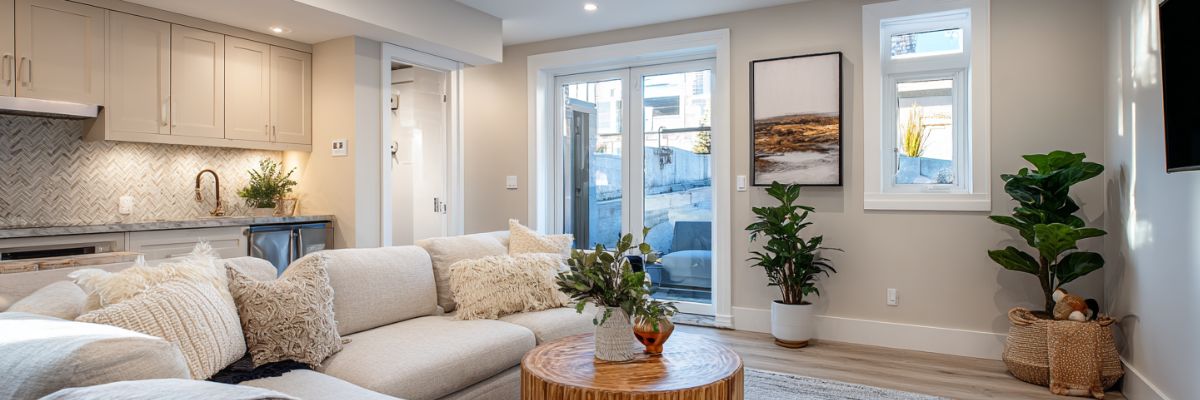

.jpg)
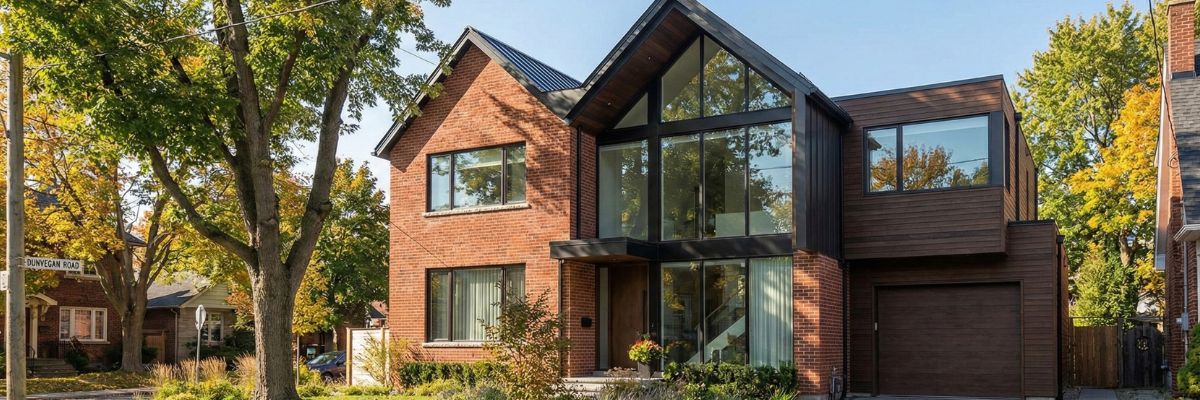
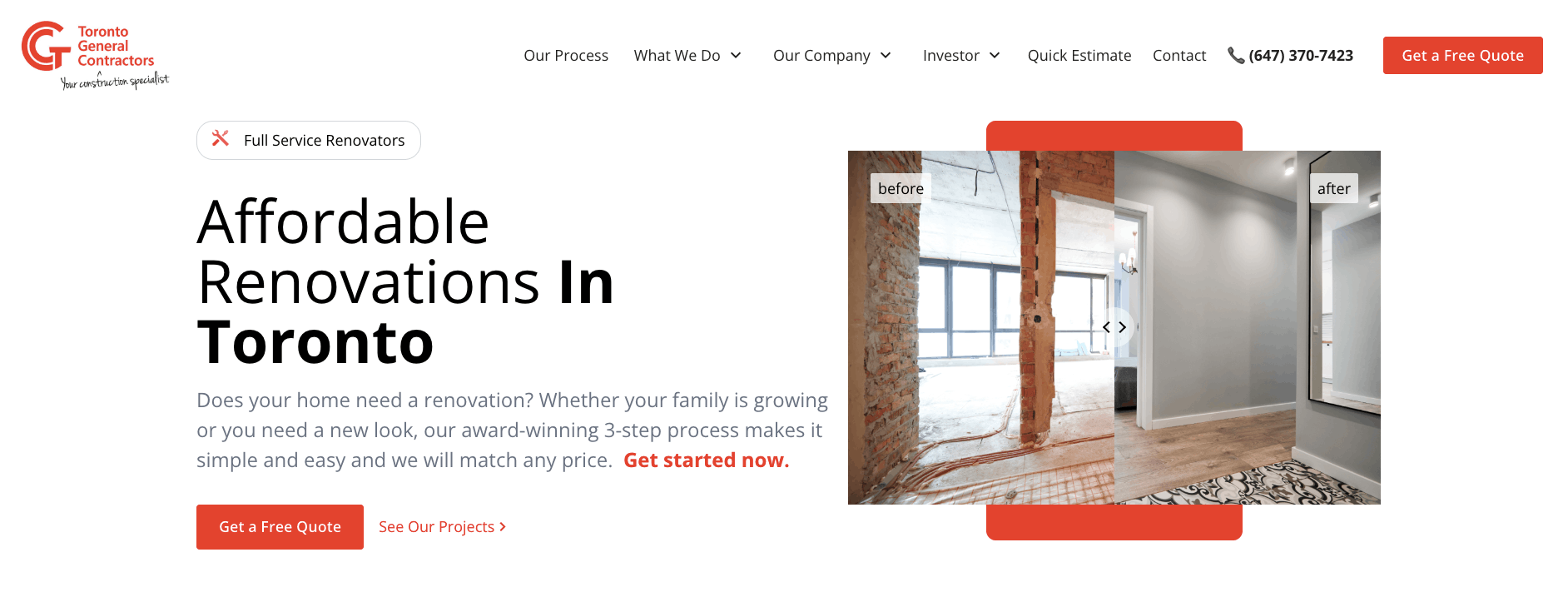
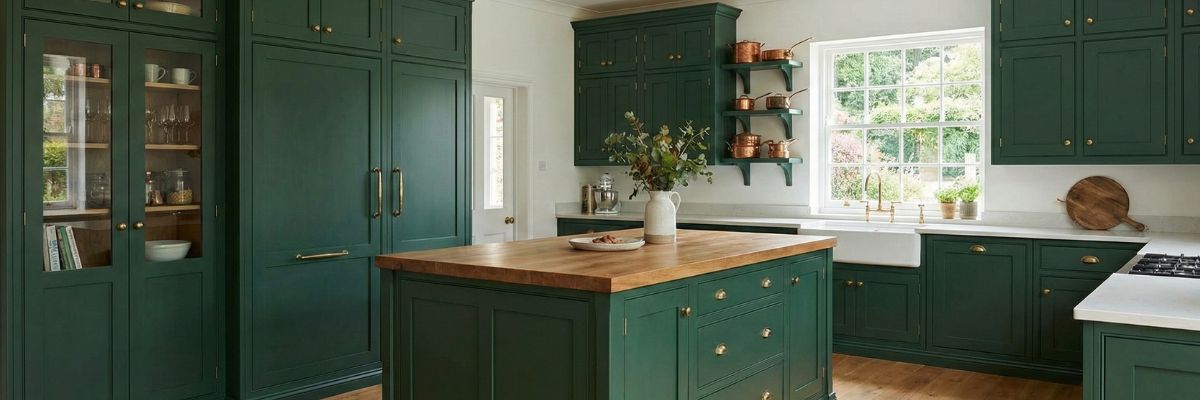
.jpg)
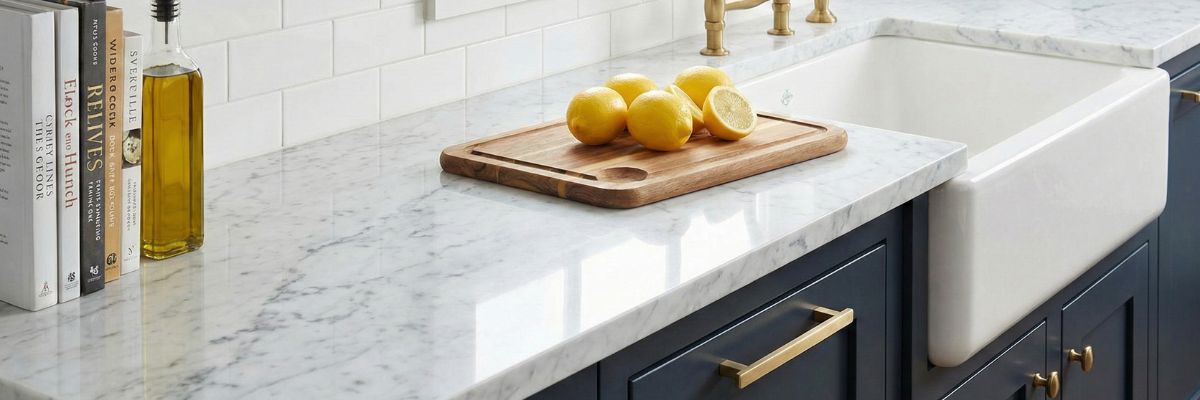
.jpg)
